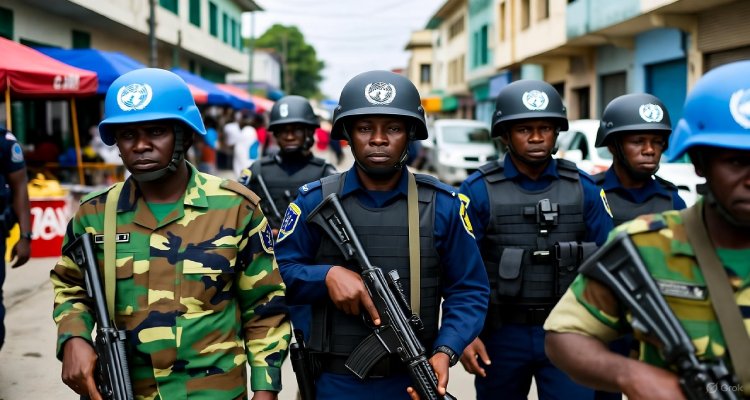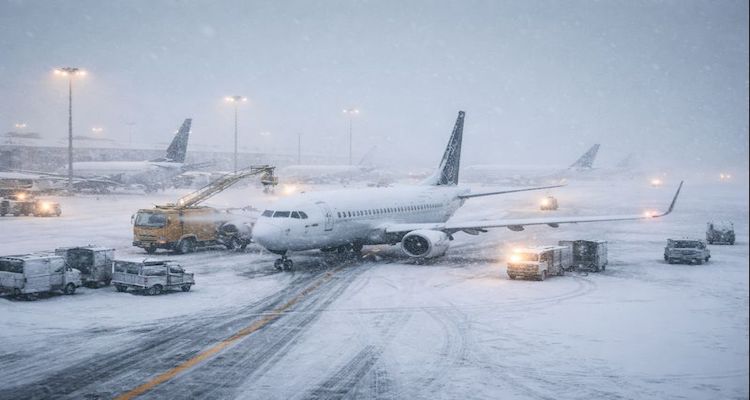Haiti sanctions, UN Security Council, Haiti gang violence, Haiti humanitarian crisis

The UN Security Council has renewed sanctions in Haiti for another year as armed gangs tighten control, pushing the nation deeper into chaos and humanitarian collapse.
A Nation Under Siege
The United Nations Security Council (UNSC) has unanimously voted to renew sanctions in Haiti for another year, a stark acknowledgment that the Caribbean nation’s spiraling violence, hunger, and displacement remain far from under control. The move extends a sanctions regime first imposed in 2022, aimed at cutting off the flow of weapons, money, and international support sustaining Haiti’s powerful armed gangs.
The resolution—drafted by the United States and Panama—includes a travel ban, asset freeze, and arms embargo targeting those fueling instability. It comes as Haiti’s security, economic, and humanitarian systems teeter on the brink of collapse, with millions struggling to survive amid the lawlessness consuming the island.
Background: From Political Vacuum to Criminal Governance
Haiti’s crisis traces back years, deepened by political assassinations, natural disasters, and chronic corruption. The assassination of President Jovenel Moïse in 2021 left a power vacuum that gangs swiftly filled, turning the capital Port-au-Prince and much of the surrounding countryside into zones of conflict.
Armed groups now control large swathes of territory, operating as de facto authorities—collecting “taxes,” enforcing curfews, and meting out brutal justice. The collapse of state institutions and an under-resourced police force has allowed these groups to thrive.
Today, more than six million Haitians are in urgent need of humanitarian assistance. Over 1.4 million have been displaced—mostly women and children—while killings, kidnappings, and sexual violence continue to escalate.
Main Developments: Renewed Sanctions, Renewed Hope
The UNSC’s latest resolution not only extends the sanctions but also renews the mandate of the panel of experts that monitors compliance and investigates arms trafficking. Officials stress that effective enforcement of the arms embargo is essential to “once and for all remove the fuel that is firing this conflict.”
In parallel, the Council recently authorized a Gang Suppression Force (GSF)—a new 5,550-strong multinational mission—to replace the Kenya-led Multinational Security Support (MSS) force that has been backing Haiti’s police since 2023.
The GSF has been given a 12-month mandate to work alongside Haitian authorities in neutralizing gangs, securing infrastructure, and protecting civilians. Its primary goal: to stem the tide of displacement and create space for humanitarian aid to reach besieged communities.
Humanitarian Fallout: Hunger, Malnutrition, and Lost Futures
Behind the headlines of conflict lies a slow-motion humanitarian catastrophe.
According to the Integrated Food Security Phase Classification (IPC), 5.7 million Haitians—over half the population—face acute food insecurity. Children are the most visible victims. In 2025 alone, UNICEF and its partners screened more than 217,000 children for malnutrition, with 21,500 receiving lifesaving treatment. Yet, this figure represents just 17% of the 129,000 children projected to need emergency nutrition support this year.
The crisis also extends into education. More than 1,600 schools remain closed, depriving hundreds of thousands of children of stability and hope. Violence and displacement have made entire regions ungovernable, particularly in Artibonite and Centre Departments, where over 239,000 people have been forced to flee since March 2025.
Expert Insight: Sanctions Alone Are Not Enough
While international observers welcome the UNSC’s renewal, experts caution that sanctions, though necessary, are not a silver bullet.
“Sanctions can restrict the flow of weapons, but without a functioning justice system and political stability, they only address symptoms, not causes,” says Dr. Renée Paul, a Haitian political analyst and security researcher based in Port-au-Prince.
Human rights advocates argue that greater coordination between the UN, regional partners, and local authorities is critical to ensure that aid reaches those most in need. Others emphasize the need for accountability, as gangs continue to acquire weapons through porous borders and illicit maritime routes.
Global Implications: Haiti’s Crisis as a Regional Flashpoint
Haiti’s instability risks spilling over into neighboring nations, particularly the Dominican Republic, which shares the island of Hispaniola. Cross-border tensions have already flared amid mass migrations and security concerns.
For Washington and regional powers, Haiti’s crisis is more than a humanitarian issue—it’s a geopolitical test of international resolve. The renewed sanctions and deployment of the GSF mark a bid to restore order, but experts warn that long-term stability will depend on rebuilding institutions, restoring trust, and empowering local governance.
The Road Ahead
The UNSC’s renewed sanctions underscore the international community’s recognition that Haiti’s descent into anarchy cannot continue unchecked. Yet, the path to recovery remains uncertain.
Until the arms embargo is enforced effectively, the gangs dismantled, and institutions rebuilt, Haiti’s people will remain trapped between hunger and horror.
For now, the UNSC’s action offers a fragile hope—a signal that the world has not turned away, even as one of the Western Hemisphere’s oldest republics fights for its survival.
Disclaimer :This article is based on official UN and humanitarian agency reports. All data and statements reflect information available as of October 2025.










